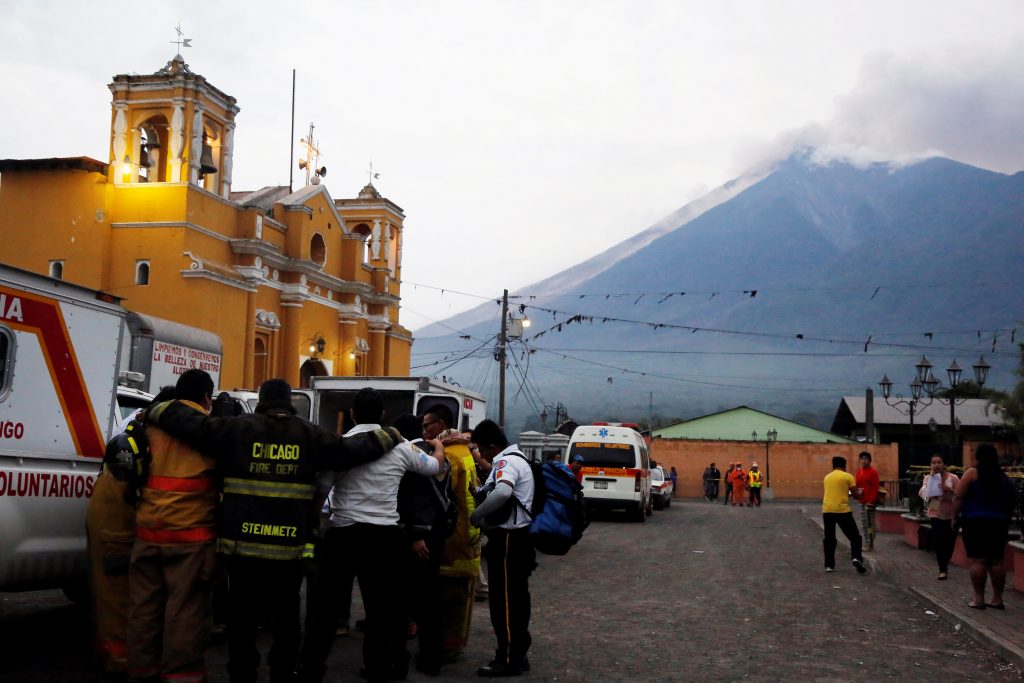With the death count of a massive volcanic eruption in Guatemala already at 65, Pope Francis has offered his prayers for the victims, their families and the thousands who have lost their homes due to the calamity.
In a June 5 telegram, the pope said he was “deeply distressed in hearing the sad news of the violent eruption” of Guatemala's Volcano de Fuego, meaning “Volcano of Fire,” which so far “has caused numerous victims and enormous material damage which has affected a significant number of the area's inhabitants.”
Signed by Vatican Secretary of State Cardinal Pietro Parolin and addressed to Guatemala's apostolic nuncio, Archbishop Nicolas Henry Marie Denis Thevenin, the telegram conveyed Pope Francis' prayers for the deceased and for all those “who are suffering the consequences of this natural disaster.”
The pope assured of his spiritual closeness and support to the families “who weep for the loss of their loved ones,” to wounded and to those who are working in relief efforts, asking that God would grant them “the gifts of solidarity, spiritual serenity and Christian hope.”
Francis' telegram came after the June 3 eruption of Volcano de Fuego, one of the Guatemala's most active volcano's, resulting in a death toll of at least 65 people so far, with many still unaccounted for.
During the eruption, a heavy pyroclastic flow — an especially deadly combo of hot toxic gases and volcanic matter — poured out of the volcano and an engulfed several villages below, burying houses and covering surrounding areas with a thick blanket of ash.
According to CONRED, Guatemala's national disaster agency, so far some 3,265 people have been evacuated and at least 46 others injured due to the volcanic eruption. The nation's airport was also reportedly shut down due to the hot ash still hanging in the air.
Guatemalan President Jimmy Morales has declared three days of national mourning over the tragedy, and, according to ABC News, has also called in his ministers to discuss declaring a state of emergency in several affected areas.
The eruption of Volcan de Fuego is Guatemala's largest volcanic eruption since the 1902 eruption of the Santa Maria volcano, which killed thousands.
In a June 4 statement, Bishop Víctor Hugo Palma Pa√∫l of Escuintla, one of the hardest hit areas, assured the people of his diocese of the Church's “closeness and solidarity, illuminated by faith in the God of Jesus Christ, God of life and not of death, of peace, and not destruction.”
The bishop asked both local and national Guatemalan authorities to continue offering relief services with “promptness and civic commitment.”
In Escuintla, the villages of Los Lotes and El Rodeo — known for the rich agricultural diversity they provide to the nation — have practically been buried, leaving inhabitants largely cut off from aid and from their livelihood.
In his statement, Hugo said three make-shift welcome centers have been set up in parishes in his diocese for those who have lost their homes.
He thanked those working to support victims, and voiced confidence in God's providence toward “the victims of this tragedy,” and entrusted “the life and spiritual and material well-being” of Guatemalans to the care of Mary, Mother of the Church.

